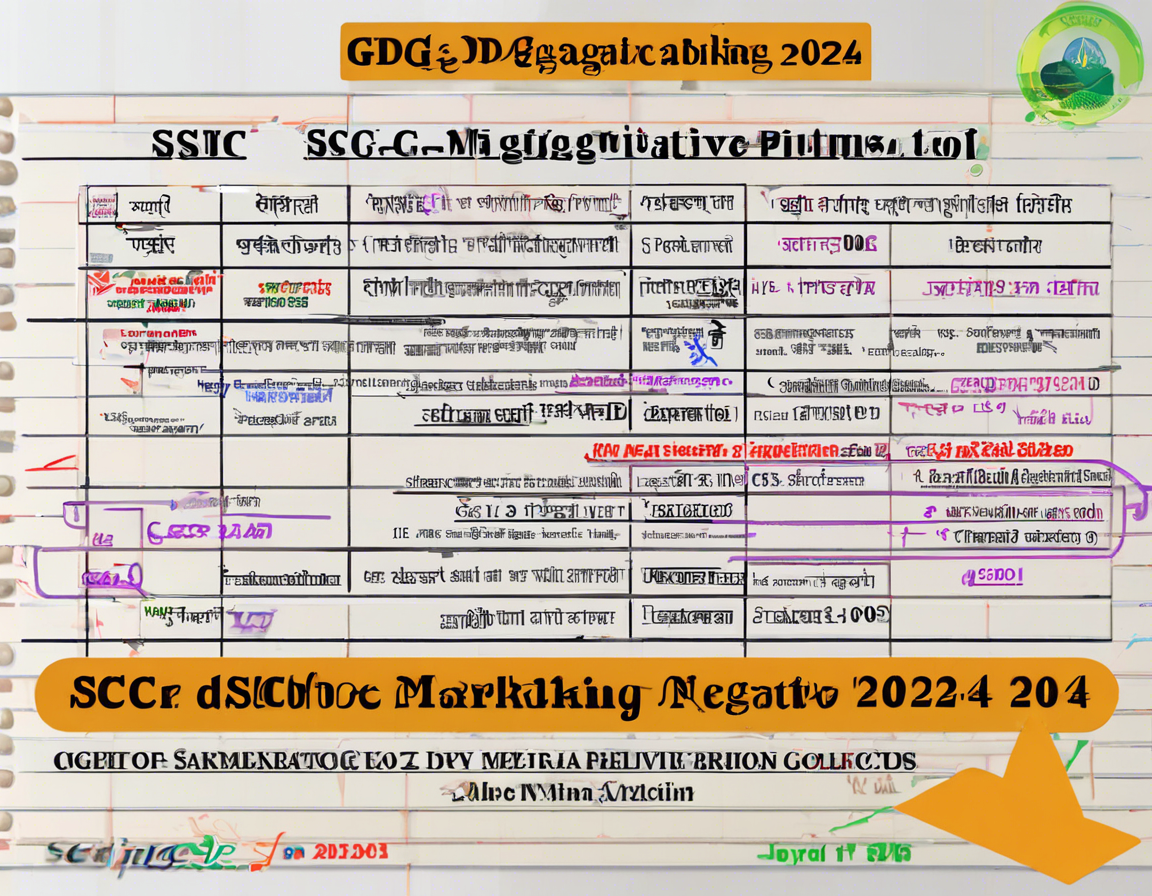Introduction
The Staff Selection Commission (SSC) conducts the General Duty (GD) examination to recruit candidates for various posts in the Border Security Force (BSF), Central Industrial Security Force (CISF), Central Reserve Police Force (CRPF), and other paramilitary forces. This examination is highly competitive, with a large number of applicants vying for a limited number of vacancies. To streamline the selection process and ensure fairness, SSC has implemented certain rules regarding negative marking. Understanding these rules is crucial for every aspirant to maximize their scores and secure a competitive edge.
Understanding Negative Marking
What is Negative Marking?
Negative marking is a system adopted by examination bodies, including SSC, to penalize candidates for incorrect answers. Under this system, for every wrong answer, a certain number of marks are deducted from the total score. This is intended to discourage random guessing and encourage candidates to answer only those questions they are confident about.
Negative Marking in SSC GD Exam
In the SSC GD exam, there is a provision for negative marking in the written examination. For every wrong answer, 0.25 marks are deducted from the total score. This means that if a candidate answers a question incorrectly, they not only lose the mark for that question but also incur a penalty of 0.25 marks.
Strategies to Minimize Negative Marking
1. Answer Only When Sure
The most effective way to minimize negative marking is to answer only those questions that you are confident about. Guessing randomly can result in unnecessary penalty marks, significantly impacting your overall score. If you are unsure about a question, it is better to skip it and move on to the next one.
2. Practice Previous Year Papers
Practicing previous year question papers is a great way to familiarize yourself with the exam pattern and types of questions asked. This will help you gauge the difficulty level of the questions and improve your accuracy in answering them.
3. Time Management
Effective time management is crucial in competitive exams like SSC GD. Allocate specific time slots to different sections of the exam and avoid spending too much time on any one question. This will help you cover the entire paper within the stipulated time and reduce the likelihood of making hasty and incorrect guesses.
4. Elimination Technique
In case you are not sure about the correct answer to a question, use the elimination technique. Rule out the options that are clearly incorrect and narrow down your choices. This increases the probability of selecting the right answer even if you are unsure initially.
FAQs (Frequently Asked Questions)
1. Does SSC GD have negative marking?
Yes, there is negative marking in the SSC GD exam. For every wrong answer, 0.25 marks are deducted from the total score.
2. How can I avoid negative marking in the SSC GD exam?
To avoid negative marking, answer only those questions you are confident about. Avoid guessing randomly and focus on accuracy rather than attempting all questions.
3. How much impact does negative marking have on the overall score in SSC GD?
Negative marking can significantly impact your overall score if you answer a large number of questions incorrectly. It is essential to minimize negative marking to maximize your chances of selection.
4. Can I challenge the negative marking in the SSC GD exam?
No, the negative marking in the SSC GD exam is a standard procedure and cannot be challenged or disputed by candidates.
5. Is the negative marking uniform for all sections in the SSC GD exam?
Yes, the negative marking of 0.25 marks for a wrong answer is applicable across all sections of the SSC GD exam. It is important to be cautious while answering questions in every section.
Conclusion
Negative marking is a critical aspect of competitive exams like the SSC GD, and understanding its implications is essential for every aspirant. By following the strategies mentioned above and being cautious while answering questions, candidates can minimize negative marking and improve their chances of securing a high score. Remember, it is not just about attempting all questions but about answering them correctly to stay ahead in the competition.
